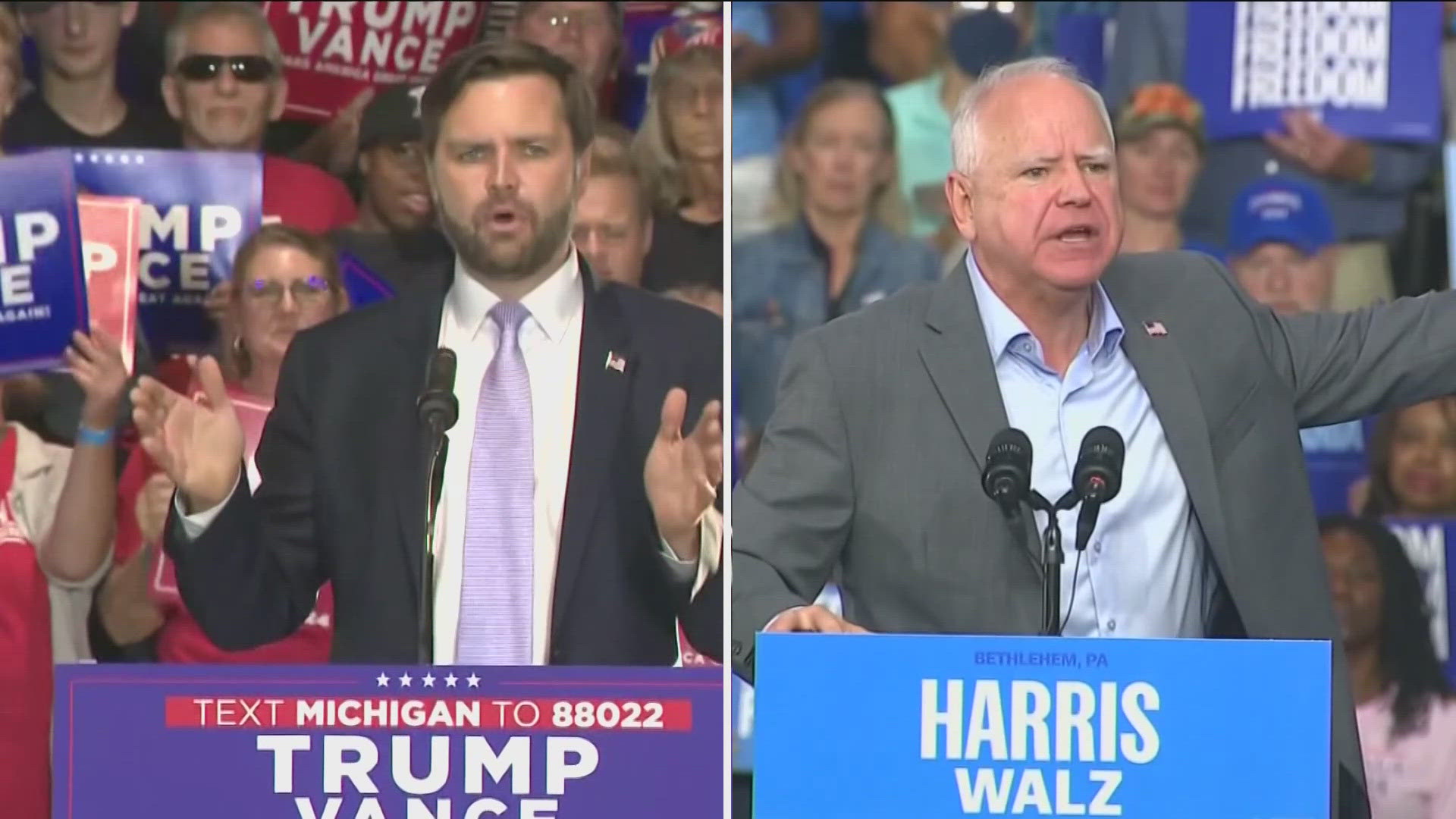MINNEAPOLIS — Heading into Tuesday night’s debate with Ohio Senator JD Vance, Governor Tim Walz faced the dual challenge of defending his own record in Minnesota, as well as standing up for the Biden-Harris Administration.
And, while America may be tuning in at 8 p.m. to see a political fist fight between J-D Vance and Tim Walz, but that wouldn’t be the best outcome for the two campaigns, according to Minnesota political analyst Steven Schier.
"If Vance and Walz are arguing about each other, they're not really helping their campaigns. What Vance has to do is make Harris look bad, and what Walz has to do is make Trump look bad because that's really the choice in voters' minds."
He noted the CBS News moderators won’t do any real-time factchecking, so the candidates will be tempted to factcheck each other. But Schier said it wouldn’t be the best use of their time on stage.
He expects Walz to go after Vance on the issue of abortion and women's rights, and for Vance to dive into Walz's history of misstatements, and the debunked conservative narrative about Walz’s retirement from the Minnesota National Guard in 2005.
"Vance will be trying to get Walz to get wound up, to be abrupt, to lose his composure, and therefore perhaps make a gaffe that is memorable," Schier explained.
"I think the key challenge for Walz is to keep his composure because when challenged in debates, he can become, as Minnesotans say, a little snippy. And that won’t serve him well."
Walz goes into the debate with a 14-point advantage over Vance in favorability ratings, which gives him more to lose in this matchup of vice presidential candidates, according to political analyst Rachael Dean Wilson of the German Marshall Fund of America.
"It actually makes the challenge a little harder for Walz because he's coming in pretty popular," Wilson told KARE.
"He has mass appeal with this ‘Coach Walz’ persona we saw during the convention. And this is 90 minutes. That's a very long time when you're up on that stage."
Wilson cited polling after the Trump-Harris debate that showed independent voters want more specifics on policy.
"If this is going to be the last debate before voters go to the polls, that key group that's actually quite small is going to be looking for a real road map. How are you going to help me? So, if you can get that across and land a few good punches, then I'd say you won the night."
Both Wilson and Schier said this debate is more consequential than most debates between running mates because it’s likely the last unscripted head-to-head tussle in this election cycle.
"It really does look like this will be the last debate before election day," Schier remarked.
"It may create some lasting impressions of the vice presidential candidate and the presidential tickets that could really make a difference on Election Day."
Wilson said avoiding gaffes is far more critical in this debate than simply delivering a message.
"If you do not meet expectations, or there is a big fumble in this debate, that’s probably going to hurt you more than a really good debate will do you good."

